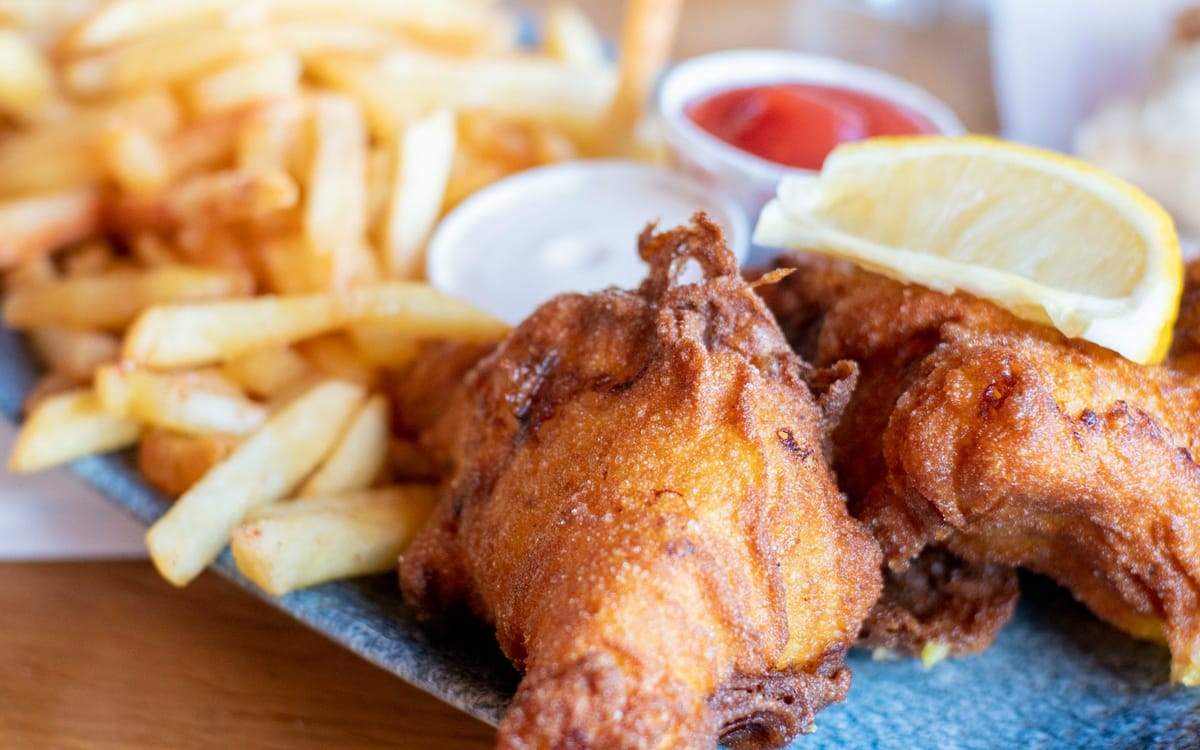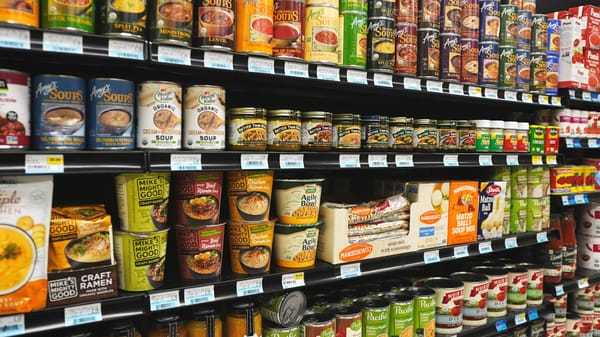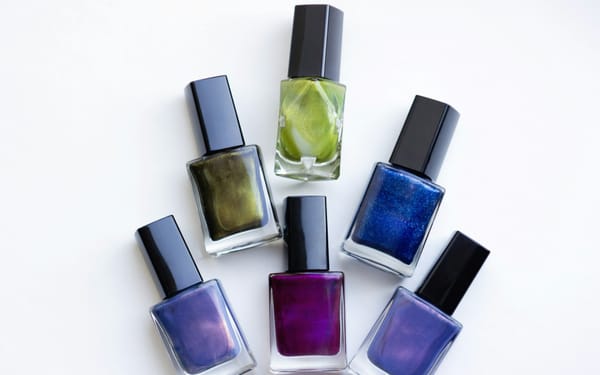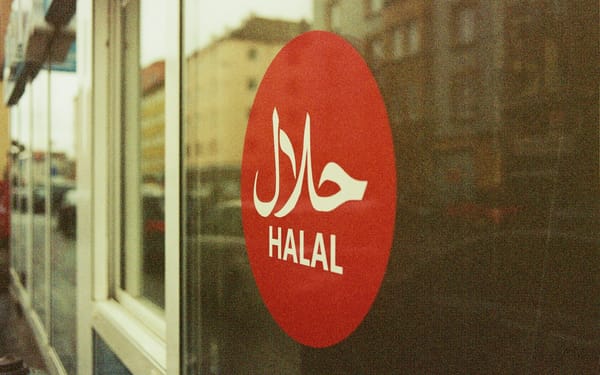Beer-Battered Foods in Islam: Permissible or Forbidden?

Living in the West, you've probably encountered beer-battered fish at restaurants or seen it on grocery store shelves. Maybe you've wondered if that crispy coating is actually halal, especially since "the alcohol cooks off," right? Well, the answer might surprise you.
After consulting the majority scholarly opinion, examining scientific evidence, and reviewing contemporary fatwas, the consensus is clear: beer-battered foods are not halal. Here's everything you need to know about this popular Western dish and why it's off-limits for Muslims.
What Exactly Is Beer Batter?
Beer batter is a coating made by mixing flour with beer (and sometimes eggs) before deep-frying fish or other foods. The beer serves two purposes: its carbonation creates a light, crispy texture, and it adds flavor to the batter.
Many restaurants use beer batter because the carbonation helps create a lighter, crunchier coating than regular flour batter. But for Muslims, this creates a significant dietary concern since beer is an alcoholic beverage - and Islam has strict rules about consuming intoxicants.
The Islamic Position: Majority Scholarly Opinion
Hanafi School Perspective
The Hanafi school distinguishes between different types of alcohol but still forbids beer-battered foods. Contemporary Hanafi scholar Shaykh Faraz A. Khan explains: "Beer battered shrimp is unlawful to consume, as is anything with beer in it, no matter how little the amount."
While Hanafis might allow trace amounts of certain alcohols under 0.5% in specific circumstances, beer doesn't qualify because:
- It's normally consumed as an intoxicant
- It's deliberately added for flavor
- The amount used is substantial, not trace
Shafi'i School Perspective
The Shafi'i school takes the strictest stance. They consider all alcoholic beverages physically impure (najis). Even if cooking removes the alcohol, the food remains contaminated because it was touched by an impure substance.
A Shafi'i fatwa states clearly: "Fire/cooking does not remove impurity, and the Shafi'i School considers alcohol, like beer, impure. Therefore, even when cooking removes all the alcohol, contamination with the impurity makes eating it problematic."
Maliki and Hanbali Views
Both schools align with prohibiting beer-battered foods. Maliki scholar Shaykh Rami Nsour notes that any liquid intoxicant added to food renders that food impure and forbidden.
The Hanbali position, echoed by contemporary Salafi scholars, states: "It is not permissible to eat dishes cooked with alcohol, as all the alcohol is not evaporated with cooking or heat."
The Science: Does Alcohol Really "Cook Off"?
Here's where things get interesting. Many people assume that cooking completely removes alcohol, but science tells a different story.
Research from the U.S. Department of Agriculture shows that:
- Flamed dishes retain about 75% of alcohol
- Quick cooking (like frying) for 15 minutes leaves 40% of alcohol
- Even after 2.5 hours of cooking, at least 5% alcohol typically remains
For beer-battered fish, which is fried for just 3-5 minutes, a significant portion of the alcohol likely remains in the batter. The characteristic beer flavor you can still taste is proof that volatile compounds from the beer haven't completely evaporated.
The Legal Principle: "Certainty Is Not Removed by Doubt"
Islamic law operates on an important maxim: "Al-yaqīn lā yazūlu bil-shakk" - certainty is not overruled by doubt.
Here's how it applies: We're certain that beer (containing alcohol) was added to the food. We're only uncertain whether it completely evaporated. Therefore, the original prohibition remains in effect unless we have absolute certainty of the alcohol's complete removal.
What About Istihālah (Transformation)?
Some might wonder about istihālah - the Islamic concept where impure substances become pure through complete transformation (like wine naturally becoming vinegar).
For istihālah to apply to beer batter, the alcohol would need to completely disappear or chemically transform into something else. Unfortunately, frying doesn't achieve this level of transformation. The alcohol mostly just evaporates into the air, and any remaining components maintain their original nature.
Practical Guidance for Muslims in the West
When Dining Out
Always check if fried fish uses beer batter. Don't hesitate to ask your server: "Does this dish have any alcohol, beer, or wine in it?" Most restaurants will know, and if they don't, they'll check with the kitchen.
When it comes to popular foods like fish and chips, many traditional shops do use beer batter, so it's worth confirming before ordering.
Reading Labels
For packaged foods, look for ingredients like "beer," "ale," "stout," or "wine" in the ingredient list. Companies must disclose these by law if they're used in the product.
Cross-Contamination Concerns
If a restaurant fries beer-battered items in the same oil as other foods, some Muslims avoid those other fried items too, particularly those following Shafi'i or Maliki schools.
Social Situations
If you discover beer was used after eating some, don't panic. Many scholars say consuming something haram unknowingly doesn't make you sinful. Just stop eating once you realize and be more careful next time.
Delicious Halal Alternatives
The good news? You can still enjoy crispy fried fish with these halal alternatives:
Club Soda or Sparkling Water: Provides the same carbonation and crispiness as beer without any alcohol. Many Japanese tempura recipes use this method.
Non-Alcoholic Beer: If it's genuinely 0.0% alcohol, this can replicate both the flavor and texture of beer batter.
Ginger Ale or Lemon-Lime Soda: These add carbonation plus a pleasant flavor twist to your batter.
Traditional Yeast Batter: Mix flour with water and a small amount of yeast, let it rise briefly for natural carbonation.
Many halal restaurants now advertise "halal fish and chips - no beer in batter, we use sparkling water." The texture difference is minimal, and you won't taste any bitter aftertaste that beer sometimes leaves.
The Bigger Picture: Staying Committed to Halal
As Muslims living in the West, we often face these dietary challenges. Whether it's finding halal meal preparation guidelines or understanding complex food issues, staying informed helps us maintain our Islamic values while enjoying life here.
Remember, avoiding beer-battered foods isn't about missing out - it's about staying true to our beliefs and finding creative alternatives. Plus, when you explain to friends why you avoid certain dishes, it can be a great conversation starter about Islamic dietary principles.
The beauty of Islamic law is that it provides clear guidance while leaving room for practical solutions. In this case, the ruling is straightforward: beer-battered foods are haram, but plenty of delicious halal alternatives exist.
Final Thoughts
While beer-battered fish is common in Western cuisine, the scholarly consensus across majority opinion is clear - it's not permissible for Muslims to consume. The combination of intentionally adding an intoxicant to food, the uncertainty of complete alcohol removal, and the availability of excellent halal alternatives makes this a straightforward ruling.
Next time you're craving fish and chips, seek out restaurants that use sparkling water in their batter, or better yet, try making your own at home with one of the halal alternatives mentioned above. Your taste buds won't know the difference, and your conscience will be clear, inshallah.
Stay informed, stay halal, and remember - there's always a permissible path forward in Islam.





